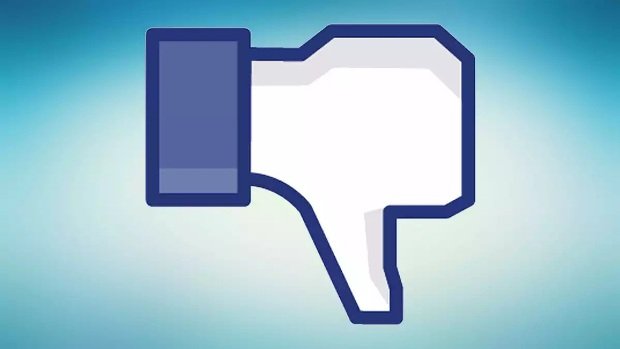In a Q&A session, CEO Mark Zuckerberg says Facebook will offer more choices than merely “like.” He also discusses virtual reality, artificial intelligence and his feelings about becoming a dad.
Don’t like something on Facebook? Soon, there’ll be a button for that.
The social-networking giant will test a new button that will expand the range of emotions users can express other than merely “liking” things.
“Not every moment is a good moment,” said Facebook’s co-founder and CEO Mark Zuckerberg in a Q&A session at the company’s headquarters. He said he realizes people may not want to “like” a current event such as the Syrian refugee crisis or a family member passing away. But he also doesn’t want users to merely vote up or down on people’s posts.
Ultimately, Facebook wants to offer users a more expanded way to share their emotional reactions. “It’s surprisingly complicated to make an interaction that’s that simple,” he said.
The move marks a key reorientation for the world’s largest social network, which counted more than a billion people using its service last month and whose “like” button has become so synonymous with its service that it’s the logo that greets visitors to its Menlo Park, California, headquarters. Some users, though, have become frustrated that the only button Facebook offers is a thumbs-up, along with the opportunity to leave a comment. Within an hour of Zuckerberg announcing that Facebook is testing a dislike button, his Q&A video had garnered more than 1,200 “likes.”
Zuckerberg has been holding town-hall-style ask-me-anything sessions about once a month since November, discussing technology trends, such as Internet traffic rules, along with free speech and social issues such as terrorism. He’s planning to hold a discussion with Indian Prime Minister Narendra Modi later this month, covering social and economic challenges, among other issues.
Another issue Zuckerberg touched on was the future of technology, particularly artificial intelligence, or the ability of machines to think and behave independently. Some tech leaders have begun to speak out about AI, and notably the threat it may pose. Zuckerberg said he’s not as concerned, in part because the technology is still in a rudimentary state.
But, he said, AI has the potential to save lives, as in the case of self-driving cars, or to help diagnose and treat disease.
“All new technology has the ability to do good and bad,” he said. “I’m fundamentally optimistic about human nature and our ability to do good.”
He gave a similar response to one person’s question about the world he envisions for his coming daughter. He spoke about freedom of speech, freedom from racism and a world without disease or war. “We can probably get there in our children’s lifetime,” he said.
Facebook will likely play a part in that new world, he said. One way is through virtual reality and the startup Oculus VR that his company acquired last year for $2 billion. Today, people like his daughter can use it as an educational tool, strapping on a headset that transports them to places like a Spanish villa or one of the Seven Wonders of the World.
There are other ways Facebook can help people learn about the world around them, he said, such as by sharing photos from the refugee crisis in Europe. Zuckerberg said although those types of items sometimes rile emotions and upset users, they’re important to see.
In addition, he said, Facebook is working with educators and local leaders around the San Francisco Bay Area to help bring new technologies to schools, and potentially even affordable housing as well. “To be a responsible member of the community, we need to contribute to the housing stock,” he said. “Over the next decade, expect more.”
As in previous question-and-answer sessions, Zuckerberg also shared some insights about himself and the way he works. He said his favorite emojis are the cactus sticker setdeveloped for Facebook, adding that he’s used a picture of a cactus eating food in response to a message from his wife saying she was hungry.
He also said that although he wears roughly the same clothes every day, including a gray T-shirt, he dons more colorful items on the weekends.
Near the end of his talk, Zuckerberg said he doesn’t worry about whether Facebook will last forever. “Everything comes to an end,” he said, adding that he’s often baffled by people who try to build a company that “lives forever.”
He’ll be happy if Facebook succeeds in its goals, which are to connect everyone in the world and give them tools to communicate. “It’ll take 20 to 30 years,” he said. “Then I don’t know what’s next.”
Source:https://www.cnet.com/

He is a well-known expert in mobile security and malware analysis. He studied Computer Science at NYU and started working as a cyber security analyst in 2003. He is actively working as an anti-malware expert. He also worked for security companies like Kaspersky Lab. His everyday job includes researching about new malware and cyber security incidents. Also he has deep level of knowledge in mobile security and mobile vulnerabilities.












